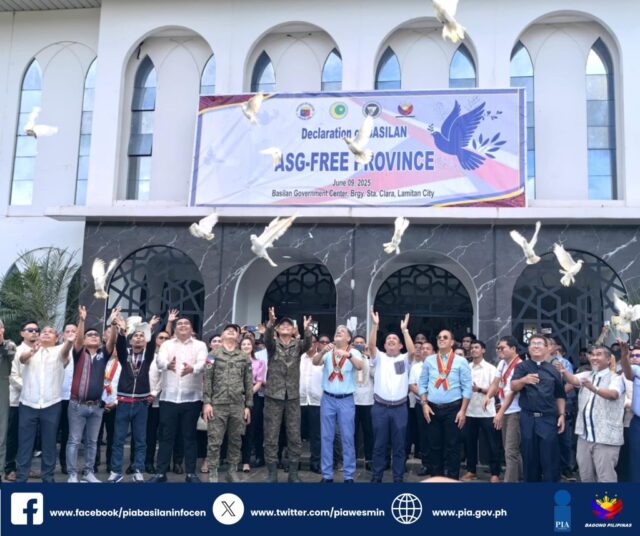
Brief: As Philippine Province Declared Free of Abu Sayyaf, Counterterrorism in Southeast Asia Moves Online
Publication: Terrorism Monitor Volume: 23 Issue: 4
By:

Executive Summary:
- Philippine officials declared the island of Basilan free of Abu Sayyaf on June 10. Basilan was formerly one of the group’s strongholds and represents another example of the group’s near-complete degradation.
- With the war on Islamist radical groups in Southeast Asia largely won, regional counterterrorist efforts have turned to fighting online radicalization.
The Philippines’ restive island of Basilan was officially declared to be free of Abu Sayyaf on June 10. The announcement comes 10 years after the group, known for being Islamic State’s Philippine branch, launched its first major attack there, where a Moroccan suicide bomber killed 11 people (GMA News Online [The Philippines], August 1, 2018). Secretary Carlito Galvez Jr. of the Office of the Presidential Adviser on Peace, Reconciliation and Unity stated that Abu Sayyaf’s demise was “a turning point for [Basilan] province from a place once tainted by bloodshed to one filled with peace” (Philippine News Agency, June 10). Abu Sayyaf’s defeat in Basilan may be more complete than in other parts of the southern Philippines, where the group once operated with near-impunity. The removal of Abu Sayyaf from Basilan is the latest progress in the battle against the group’s low-level but intractable insurgency, itself representative of the decline of violent Islamism in Southeast Asia.
Prior to the Presidential Peace Adviser announcing Abu Sayyaf’s demise from Basilan, there were many signs that Abu Sayyaf was on its last legs. One Abu Sayyaf member who was involved in the Dos Palmas kidnappings in Lantawan township on Basilan in the early 2000s was arrested in March, having spent the last two decades on the run (GMA News Online [The Philippines], March 31). The Dos Palmas (also called the Golden Harvest) kidnappings were a thirteen-month crisis that involved Abu Sayyaf capturing more than 100 civilians, at least 20 of whom were killed. Ever since, Dos Palmas kidnappings have been at the forefront of Philippine counterterrorism efforts, with authorities still conducting arrests in 2019 and 2021 (The Philippine Star, March 12, 2019; Benar News, September 15, 2021). While it was originally reported that an American was abducted and killed by Abu Sayyaf in Basilan last October, it appears that the motive of the armed men behind the crime was financial and/or personal, with no direct connection with jihadism or Abu Sayyaf being identified (Minda News, October 19, 2024; Manilla Bulletin, October 21, 2024; Medium/@Crime Desk, January 11).
The nearby island of Jolo in the province of Sulu is also putting its notoriety as a previous hotbed of Abu Sayyaf activity behind it. Jolo is currently enjoying economic rejuvenation as the island transitions from “terrorism to tourism,” with night markets and entertainment becoming hallmarks of the territory (South China Morning Post, December 2, 2024). Branded as the “home to Philippine militancy” in 2013, the province of Sulu (and the region more broadly) is becoming a place where locals and foreigners feel safe (BBC, February 14, 2013; Arab News, April 16, 2022).
The reduction of terrorist activity in the region has meant that regional counterterrorism agencies in Southeast Asia have largely pivoted to fighting online radicalization. Even though Islamic State (IS) affiliates have declined in power since 2019, Southeast Asian security officials are concerned about “Cyber Jihad 2.0,” which they describe as a “sophisticated, borderless war for minds, fought in newsfeeds, private chats, and encrypted forums” (Bangkok Post, July 7).
In Malaysia, more than half of the IS-related arrests involved support for the group on online platforms (Observer Research Foundation, March 22). Southeast Asian governments are encouraging the international community to continue to share information about online terrorism networks to prevent threats from metastasizing. This comes as many Western countries continue to deprioritize terrorism in their national security strategies to focus on geopolitical threats, potentially at their own peril (United Nations General Assembly, October 3, 2023).



